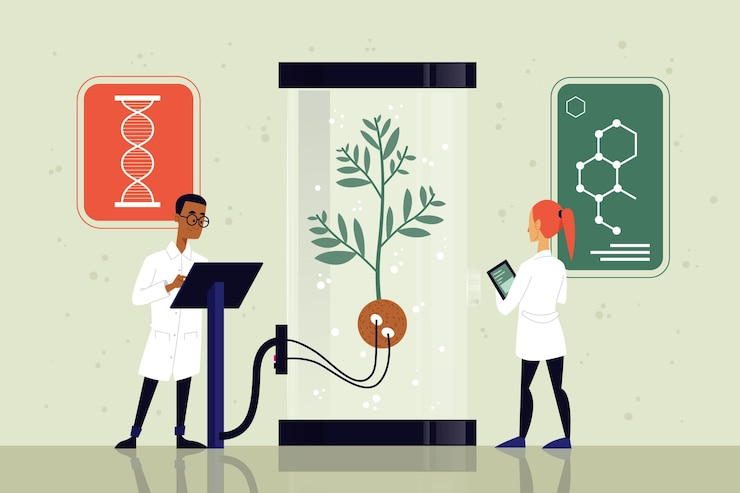What is Genetic NOA Testing?
Non-obstructive azoospermia (NOA) is a condition where sperm production in men is severely impaired or absent, often leading to infertility. Unlike obstructive azoospermia, which results from physical blockages, NOA arises due to issues within the testes themselves. Genetic NOA Testing helps identify the underlying genetic factors responsible for this condition, providing crucial insights into its diagnosis and management.
Causes of Non-Obstructive Azoospermia (NOA)
Hormonal Imbalances
Hormones such as testosterone, follicle-stimulating hormone (FSH), and luteinizing hormone (LH) are essential for sperm production. If these hormonal levels are disrupted, sperm production may stop. As a result, Genetic NOA Testing is vital in uncovering possible genetic or hormonal causes.
Environmental Factors
External factors like exposure to toxins, radiation, excessive heat, or harmful chemicals can damage sperm development. Additionally, smoking, alcohol use, or certain medications may also contribute. Thus, Genetic NOA Testing can help distinguish between environmental factors and genetic causes.
Genetic Causes
Genetics plays a significant role in NOA. Mutations in specific genes or chromosomal abnormalities, such as Klinefelter syndrome or Y chromosome microdeletions, are common contributors. For instance, Genetic NOA Testing is crucial in identifying these inherited conditions and providing targeted treatment options.
Why is Family History Important in Genetic NOA Testing?
Understanding Genetic Influence on NOA
Many cases of NOA are tied to inherited conditions. For example, genetic disorders like cystic fibrosis or Klinefelter syndrome often run in families. When combined with a detailed family history, Genetic NOA Testing helps pinpoint hereditary causes more accurately.
Revealing Hidden Patterns in Family History
Family history can uncover recurring infertility patterns or related health issues. For instance, if several male relatives in a family are infertile, it suggests a potential genetic link. As a result, further exploration through genetic testing is essential.
Hereditary Conditions and NOA
Certain hereditary conditions, like chromosomal translocations, can affect sperm production. By integrating genetic testing with family trends, healthcare providers can better understand the genetic roots of NOA and refine treatment options.
What Does Genetic NOA Testing Involve?
Revealing Genetic Mutations
Genetic NOA Testing focuses on identifying mutations in well-researched genes linked to infertility. This test helps determine if NOA has a genetic basis, offering targeted insights that can guide treatment planning.
Limitations of Genetic Testing
However, not all genetic causes are currently known. Thus, standard testing may miss rare or undiscovered mutations, leaving some cases unresolved. In such cases, advanced diagnostic tools like whole-genome sequencing are becoming more valuable in detecting previously undiagnosed genetic factors.
The Role of Family Analysis in Bridging Gaps
Filling Diagnostic Gaps
A thorough family analysis complements Genetic NOA Testing by revealing trends and inherited conditions that genetic tests alone might miss. This combined approach allows for a more comprehensive understanding of NOA’s causes.
Supporting Diagnosis with Family History
If multiple male relatives experience infertility, it suggests a hereditary link. Therefore, combining family analysis with genetic testing strengthens the overall diagnosis, providing a clearer picture of the condition.
Identifying Cross-Generational Trends
Moreover, analyzing family history can uncover conditions that affect sperm production, such as inherited hormonal disorders. This deeper understanding ensures that healthcare providers do not overlook any crucial factors.
Managing NOA After Diagnosis
Genetic Counseling
Genetic counselors help families navigate the diagnostic process, explaining how inheritance affects NOA and guiding them on testing and treatment options. This expert guidance is essential in understanding how genetic mutations can impact fertility.
Advanced Diagnostic Options
Emerging technologies, like whole-genome sequencing, enhance the diagnostic scope of Gene-tic NOA Testing by identifying rare mutations and offering comprehensive insights into unresolved cases. Therefore, these advanced options are becoming increasingly important for accurate diagnosis.
Collaboration with Specialists
Working with a multidisciplinary team, including urologists, endocrinologists, and geneticists, ensures a holistic approach to NOA diagnosis and management. Such collaboration improves the chances of identifying the most effective treatment options.
Benefits of Genetic NOs Testing
- Identifies Genetic Causes: Pinpoints mutations or abnormalities causing infertility.
- Supports Family Planning: Helps families understand hereditary risks.
- Guides Treatment Plans: Tailor’s therapies based on genetic findings.
- Improves Diagnosis: Fills gaps left by standard infertility tests.
Conclusion: Genetics NOA Testing and Family History
Genetic NOa Testing is a powerful tool in diagnosing and managing non-obstructive azoospermia. While genetic testing has limitations, combining it with a detailed family history and advanced diagnostic options improves the chances of understanding NOA’s root causes. By taking a proactive approach and working with specialists, individuals and families can uncover effective solutions to infertility challenges.
As scientific research continues to evolve, Genetic NOa Testing promises to offer even greater accuracy and hope for those affected by NOA.
FAQs About Genetic NO-A Testing
What is Genetic NOA Tes-ting?
Genetic NOA Test-ing identifies mutations or chromosomal abnormalities linked to non-obstructive azoospermia, helping diagnose and manage male infertility.
Why is family history important in NOA diagnosis?
Family history can reveal hereditary conditions or recurring infertility patterns, aiding in identifying genetic causes.
Are there limitations to Genetic NOA Testing?
Yes, current tests focus on known mutations, meaning rare or undiscovered genetic factors may remain undiagnosed.
Can NOA be treated if it has a genetic cause?
Treatment depends on the specific genetic cause. While some conditions can be managed with hormonal therapy or surgery, others may require assisted reproductive techniques.
Should I consult a specialist if NOA runs in my family?
Yes, consulting a genetic counselor or specialist ensures proper evaluation, diagnosis, and tailored treatment recommendations.




